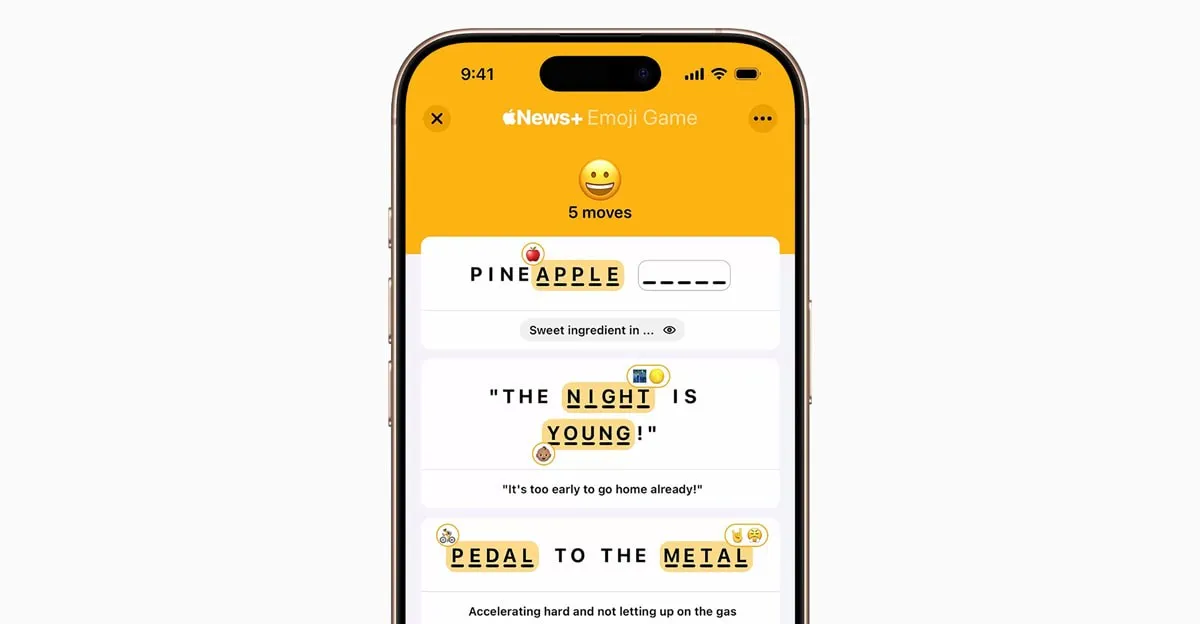
Since the New York Times acquired Wordle and fully embraced the gaming sector, a competitive landscape has emerged within the word game community. The Times has continuously rolled out new games, facing off against intriguing competitors such as Puzzmo, Netflix, The Atlantic, and even LinkedIn. Established names like Words With Friends have also adapted their offerings in response to the evolving gaming environment.
Among the fresh entries in this vibrant market is Apple News Plus, which has just launched a game called the Emoji Game. This innovative game can be likened to a mix of Wordle and emoji puzzles. Each day, players receive three phrases that feature some letters filled in, while the remainder remains blank, creating an engaging challenge.
The game provides a partial hint for the word or phrase you are tasked with completing, alongside a selection of emojis at the bottom of the screen. Players must interpret the words or sounds represented by the emojis to fill in the blanks. For example, you might see a prompt such as SH_ _ _, accompanied by an emoji of an elf, leading to the solution "shelf." This unique twist on traditional word games has gained traction, especially as word games have surged in popularity over the past three years.
The Emoji Game offers a novel way to engage your brain, providing a refreshing challenge that might take some time to truly appreciate. One of the appealing aspects of this game is the absence of a fail state; incorrect guesses do not carry a real penalty. However, the game does track the number of attempts taken to solve each puzzle, introducing a competitive edge for players.
For those curious about the game, recent puzzles are available to play for free, allowing users to experience the game without a Apple News Plus subscription. Currently, the Emoji Game is accessible only in the US and Canada.
The Emoji Game serves as a small yet delightful daily diversion, highlighting the fascinating innovation and experimentation flourishing within the word game genre. Following the popularity of Wordle and its subsequent clones, no other word game has achieved similar viral success. Designers are now focused on crafting unique twists on the existing formula to stand out in a crowded market.
The trend suggests that a single blockbuster hit is not the only goal; instead, a diverse array of engaging games can keep players returning daily. For example, Puzzmo has steadily expanded since its launch, offering everything from accessible crosswords to a weather-themed interpretation of sudoku. Their latest release, Missing Link, is an experimental word game that elevates the traditional word search puzzle.
As subscription services continue to integrate into everyday life, these daily games have emerged as effective retention strategies. Players find it hard to break established habits, especially when those habits provide a brief and enjoyable escape through clever wordplay or engaging emoji challenges.
In conclusion, the landscape of online word games is evolving rapidly, driven by innovation and the desire for unique player experiences. With the introduction of games like the Emoji Game and the ongoing adaptability of established titles, the future of word gaming appears both exciting and promising.